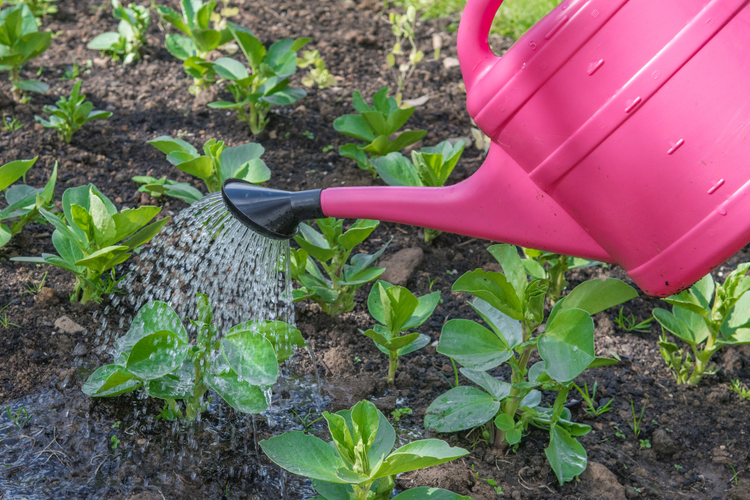9 Herbs To Grow In Your Garden This Spring!
Growing our own medicinal herbs provide us with the opportunity to connect with nature.
“The glory of gardening: hands in the dirt, head in the sun, heart with nature. To nurture a garden is to feed not just the body, but the soul.” – Alfred Austin
The benefits of growing your own herbs
There is freedom in gardening, in choosing which plants we want to grow and care for.
Growing our own garden provides us with:
Fresh herbs.
Educational opportunities for both kids and adults.
Reduced waste, cut only what you need!
The opportunity to build a deep connection with the plants -
how do they grow, what do they like or dislike?
Self-sustainability
How do you choose which herbs to grow?
Now that you've chosen to start your own garden, there are a few things you should do first.
Determine which plants will thrive in your location
You can determine this by taking a look at the USDA Plant Hardiness Zone map - This map will let you know which plants will thrive in your location.
“A hardiness zone is a geographic area defined as having a certain average annual minimum temperature, a factor relevant to the survival of many plants. In some systems, other statistics are included in the calculations.”
Determine how much time you want to spend in your garden each week.
The amount of time you have available to spend in your garden will play a significant role in determining which plants to grow. Some herbs require more care than others, such as pruning and watering. You must also consider the size of your garden; larger gardens demand more upkeep.
Decide what medicinal properties you want in your garden.
Here comes the exciting part: designing your ideal medicinal garden! Begin by deciding what kind of medicinal properties you want your plants to have; perhaps you want herbs for wounds and sunburns or herbs to help your im
Uses for your garden herbs
Kitchen herbs
The advantage of having an herb garden is that you can dry your herbs and restock your pantry with fresh, homegrown herbs all year long! You can also enjoy them fresh while they’re in season; add them to veggies, meats, and salads!
Teas
Herbal teas are one of the oldest forms of medicine. Water can extract nutrients and properties from plants that are not oil or alcohol-soluble. For example, calcium found in plants can be better extracted in water than in alcohol.
What is the difference between an herbal tea and an herbal infusion? An infusion is just a stronger form of medicinal tea. Infusions are generally left to steep in water for 1 hour for flowers and leaves and 4 hours for roots and barks. Some infusions can even be left to steep overnight.
Tinctures
Herbal extracts/tinctures are a combination of plant material and alcohol or glycerin. Tinctures can be made from fresh or dried plant material that is steeped for a period of 6 weeks in the menstruum of choice, traditionally alcohol.
Alcohol is a great solvent to extract a wide range of healing properties from plants, creating a concentrated solution whose effects can often be felt on the same day. Stronger effects can usually be felt in about 1–4 weeks.
Accelerate your herbal learning through connection, direction, and support.
Starting your herbal journey is awesome, whether it’s through book learning, watching videos, or growing herbs in your garden. It’s fulfilling to work on your own time and listen to your inner guidance. But deepening your herbal knowledge can also be a real challenge. It’s lonely, there is so much to learn and the questions and doubts can leave you paralyzed to move forward.
The Budding Herbalist Program created and led by Registered Herbalist Gina Kearney meets you right where you are. Whether you’re just discovering herbs and nature-based practices or already on your path, this program is designed to help you connect even deeper with the plants and the natural world around you.

